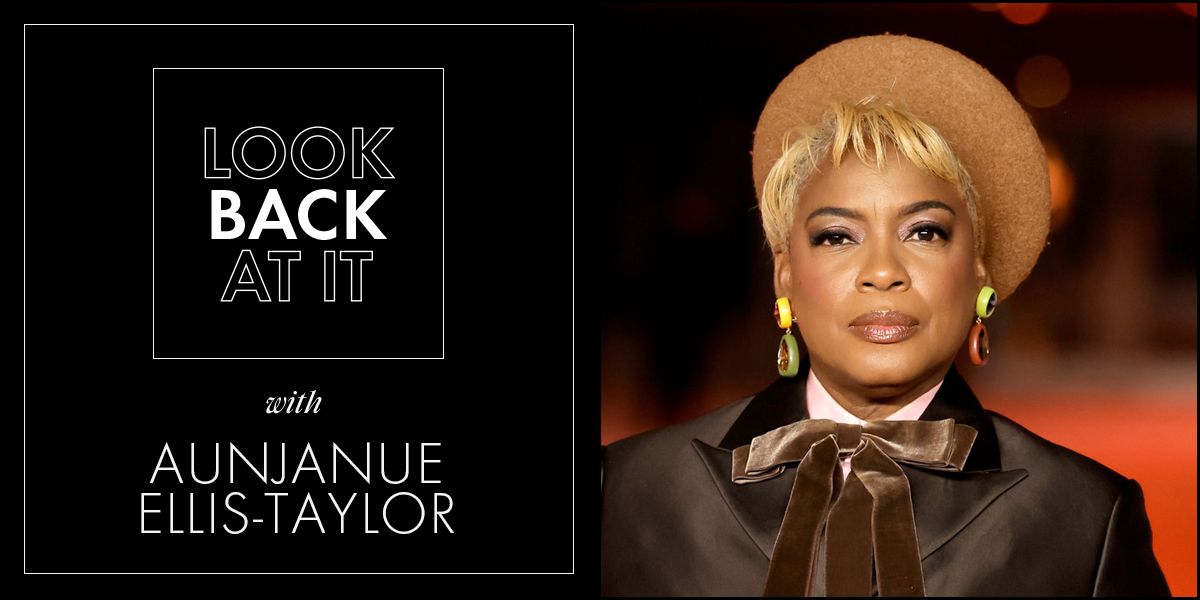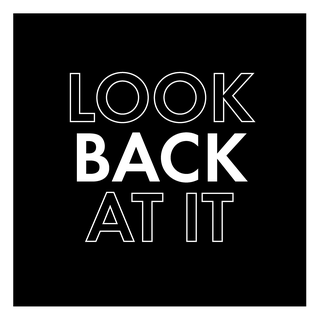Products You May Like
Welcome to Look Back At It, a column where some of the most iconic Black actresses in Hollywood reminisce and reflect on the roles that made them stars. In this installment, Aunjanue Ellis-Taylor breaks down her career—from The Help and If Beale Street Could Talk to her most recent film, Origin.
Aunjanue Ellis-Taylor has been giving award-worthy performances for decades.
After graduating from NYU’s Tisch School of the Arts, she got her start (where else?) on Broadway, starring in a revival of Shakespeare’s The Tempest. Then came a few stints on procedural shows like New York Undercover and High Incident before she landed a role in the Oscar-nominated film Ray. Her career has been on an incline ever since. In 2021, she was nominated for her second Emmy for Lovecraft Country (her first was for the Netflix miniseries When They See Us). The year after, she was nominated for her first Oscar for her role as the matriarch of the Williams family in King Richard.
And now, there’s Origin, the new film by Ava DuVernay based on the book Caste: The Origins of Our Discontents by Isabel Wilkerson. While the film has received love from the NAACP and Gotham Awards, it failed to secure nominations at major shows like the Golden Globes or the Oscars, much to the chagrin of several fans and critics. “We have been overlooked in the whole awards part of it for the most part,” says Ellis-Taylor, “but I’m hoping that the film will have a life and that people will embrace it with the same spirit that we had when we made it.”
Below, she breaks down her most iconic film and television roles.
Mary Ann Fisher in Ray (2004)
“I remember being in scenes where I was fighting and having these verbal altercations with Regina King. And it was funny because I was trying to be her friend off-camera. I would be like, ‘Hey, girl’ and she’d stay in character. She’d stay in that space. But then when it was done, she was perfectly lovely.”
Yule Mae Davis in The Help (2011)
“The good thing about The Help was that I was able to stay at my home in Mississippi because that’s where we were shooting. I auditioned for this so many times. They wanted to tell me no and I just refused. And look at this cast that I ended up being part of. I mean, Viola, Octavia, and Emma? Fantastic company.”
Vicki Anderson in Get on Up (2014)
“I barely had two words to say in this, but I did get to dance on stage with Tika Sumpter. She’s younger than me and I remember getting so tired. I’d be off to the side like, ‘Lord Jesus, are we done yet?’ But I had fun. And Chadwick [Boseman] was lovely to me. I also loved working with Nelsan Ellis, who was one of the most brilliant actors ever. They are missed.”
Nancy in The Birth of a Nation (2016)
“Birth of a Nation was a beautiful film. I hate so badly that it was lost in what happened with its director, Nate Parker. But it doesn’t take away from the fact that this film is fantastic. It spoke to a moment in this nation’s history where we took up arms led by Nat Turner to stage an insurrection. It’s history that we should know, not as just Black people, but all of us should know what Nat Turner did. I hope that, eventually, it will come back to us because it’s great filmmaking. And beyond that, the history in it is so necessary. And Aja Naomi King gives a tremendous performance.”
Mrs. Hunt in If Beale Street Could Talk (2018)
“I loved playing this character and I hated so bad that I only had one scene. I had such a good time with her. In terms of character work, this was one of those roles where I felt like I got to live in something and enjoy every minute of it. I had a blast doing that part. And I got to work with Dominique Thorne, Ebony Obsidian, Regina King, and Colman Domingo. Heavy hitters, girl.”
Sharonne Salaam in When They See Us (2019)
“This felt like the beginning of something in my life. I think it probably started with Beale Street and then this added on to that. This was one of the most important things that I’ve ever done. And it began a creative relationship with Ava, even though she doesn’t remember me from this. There were so many people in the series that she barely remembers me, but I like to think that a seed was planted.”
Hippolyta Freeman in Lovecraft Country (2020)
“Man, we went on a journey with this. When I read the script, I knew it was something special. My character Hippolyta has kind of become this hero for Black women in many ways. And it means so much to me that I had a chance to do that. And I loved working with Courtney B. Vance. You’re in a scene with him and he’s going to make you better. Period. … But this was one of the most special experiences I’ve ever had and I’m so grateful for it.”
Mattie Moss Clark in The Clark Sisters: First Ladies of Gospel (2020)
“For this, I played Dr. Mattie Moss Clark, the matriarch of The Clark Sisters. It was the most fun I’ve ever had on screen. Hands down. It was the kind of work that I liked doing in Beale Street where I could just completely drown in somebody and take up all the space in a room.”
Oracene Williams in King Richard (2021)
“The great thing about doing films is that you get a chance to speak for people like Ms. Oracene and to introduce the world to them in a way that the world hadn’t known. We didn’t know that she was Serena’s teacher and her coach. We gave all the credit to Mr. Williams because he’s the man. Meanwhile, she’s right there. But I worked with some beautiful young ladies. And Mr. Will Smith was a protector and an advocate for me and those young women on that film every day. He’s such a great example on how to be a leader on a film set. And I got an Oscar nomination. Not a bad day at the office.”
Mama in The Color Purple (2023)
“I was in this for two seconds. But I just want to take a second here and say The Color Purple is a movie about Black lesbians. I don’t want anybody to miss that message of this film. We get caught up in these other messages about the film, but it is a movie about Black women who are in love with each other as women. It’s not just sisterhood. Alice Walker is a bisexual woman. She has had exclusive long-term relationships with women. I say that because it’s important for Black lesbians and Black queer women like myself to be reminded that that’s what this film and book are about.”
Isabel Wilkerson in Origin (2023)
“I always try to go for my purpose and my paycheck at the same time when I’m lucky enough to do that. This is definitely one of those moments where I felt like I was a part of something much bigger than me. I really tried to work hard on it and do the best I could. And now it’s in the world. What I hope is that the moviegoing experience is not a one-dimensional experience. I want people to go see it and then talk to somebody about it. I pray that conversations come out of this. I’m praying very, very hard for that.”

